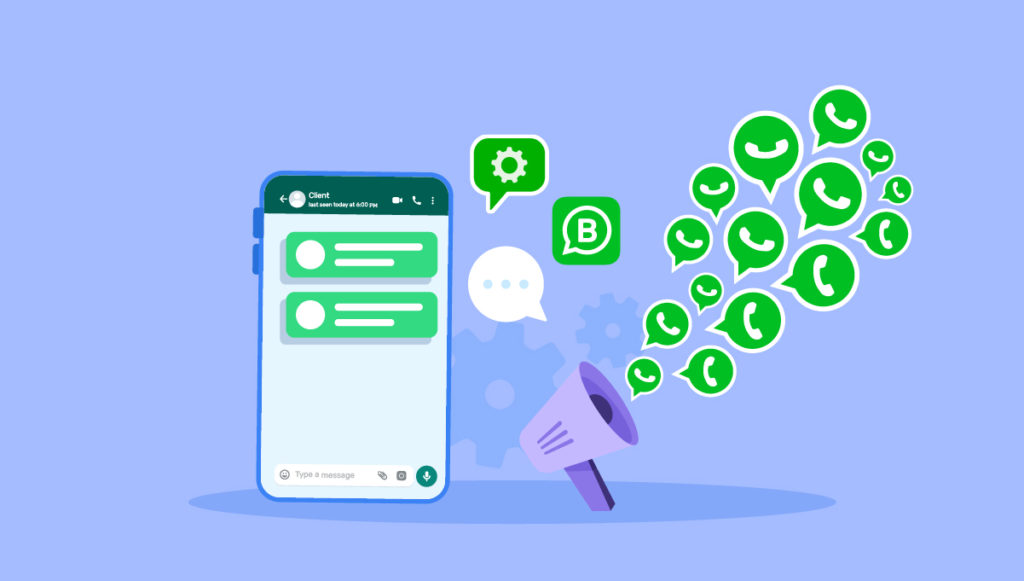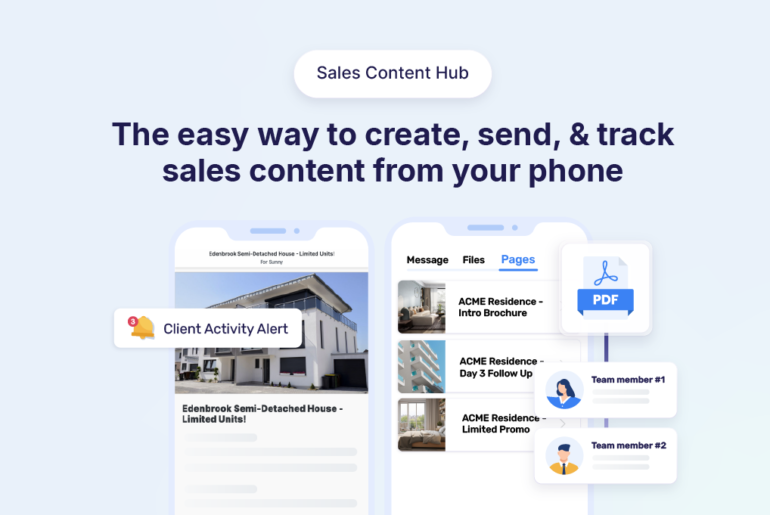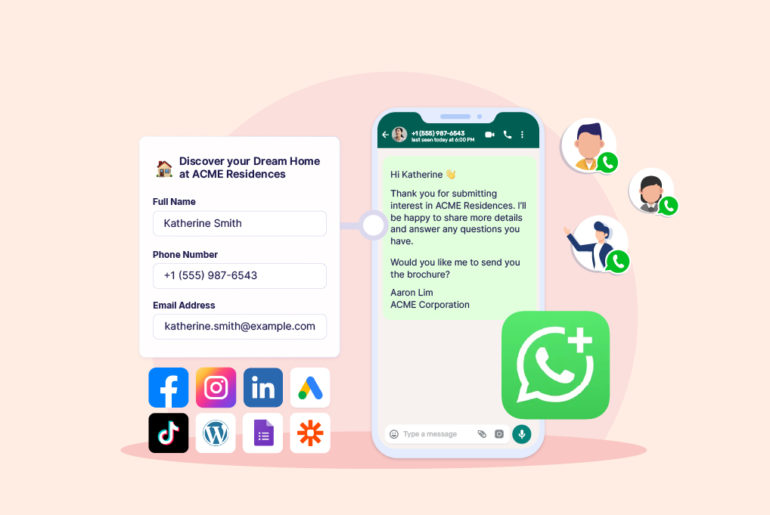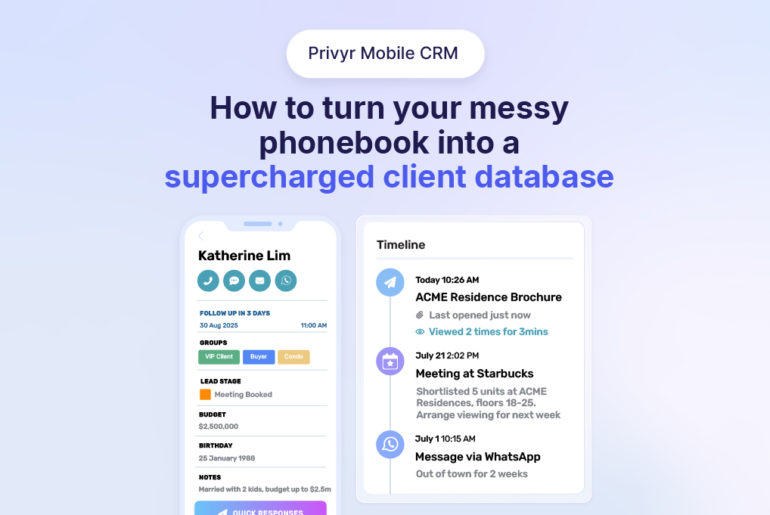WhatsApp provides a great communication platform for businesses and organisations. However, while it offers many features like Broadcast Lists and WhatsApp Communities that make business communication easier, it doesn’t directly support sending bulk messages to numbers that aren’t saved as contacts in your phone. If you’re generating leads online and contacting them through WhatsApp, you wouldn’t save each contact on your phone, which is not only tedious but may also make your contacts list messy. So what do you do in that case?
Suggested Reads: 8 Chinese New Year Wishes for Business and Clients (2024)

Don’t worry, there are a few workarounds and strategies that help you send bulk messages to multiple unsaved numbers. If you have been searching for how to send bulk WhatsApp messages without adding contact, this article is for you. In this article, we’ll cover different ways you can send bulk messages on WhatsApp without adding them as contacts. Let’s explore each of them.

How to Send Bulk WhatsApp Messages
There are basically three ways to send bulk WhatsApp messages without saving numbers of your recipients: 1) Using third party tools, 2) Using WhatsApp’s “Click to Chat” feature, and 3) Using WhatsApp Business API.
Let’s discuss them in detail.
Method 1: Send Bulk Message Using Third Party Tools
Many third-party tools can help you send bulk messages on WhatsApp without adding contacts. That being said, you should be aware of the tool you’re using and its potential risks before sending a WhatsApp message to multiple unsaved numbers. Also, keep in mind that WhatsApp’s Terms of Service prohibits the use of unauthorised automation tools to send bulk messages, and using such tools could lead to banning of your account. When it comes to third-party tools, it’s important to distinguish between what is allowed and what isn’t allowed.
Moreover, third-party tools are different according to the version of WhatsApp you are using. Both regular WhatsApp and WhatsApp Business basically work the same way. However, in the case of WhatsApp business API, you will need a completely different set of tools and settings. Here are three ways you can use third-party tools to bulk send messages without adding contacts:
- Using WhatsApp Business API tools: It’s relatively easier to send bulk messages without adding contacts if you use WhatsApp Business API. Many official WhatsApp API tools such as WATI allow you to compose messages and bulk send it to different numbers without adding them to your contacts. However, keep in mind that WhatsApp Business API is a completely different software from WhatsApp or WhatsApp Business. It is built for professional messaging at a huge scale and it is not free.
- Using semi-automatic bulk send tools: If you use normal WhatsApp or WhatsApp Business, one way to bulk-send messages without saving contacts is by using semi-automatic bulk send tools. For this feature, however, you’ll need to use the ‘Click to Chat’ feature that WhatsApp provides. Basically, you need to allow these apps to click SEND for each recipient. This procedure will be implemented through official integrations, and more importantly, it doesn’t break WhatsApp’s rule on the use of automation. We’ll discuss WhatsApp’s ‘Click to Chat’ feature in detail later.
- Giving external apps access to your WhatsApp web or your device: Apps like WhatsApp Bulk Sender and SCHEDIt can help you send bulk messages via your WhatsApp account without adding contacts. But such tools come with a catch: you’ll have to give these apps full access to your device or WhatsApp. They will usually ask you to scan QR code and take control of your account and device before bulk-sending your messages. Keep in mind this is not a recommended method as you’ll be compromising your privacy,data, and chats to a third party. More importantly, they go against WhatsApp Terms and Conditions, which could result in a ban.
Method 2: Using WhatsApp’s ‘Click to Chat’ Feature
WhatsApp has a ‘Click to Chat’ feature that allows users to send messages to unsaved numbers. This feature uses a URL format (https://wa.me/<number>) to open a chat window. You can then send your message to the number without saving it on your contacts. Here’s a step-by-step process to use ‘Click to Chat’ feature:
- Type https://wa.me/ and add the number you wish to send messages to (enter country code and the mobile number). For example, if you wish to send a message to a U.S. number (country code +1), and the mobile number is 1234567890, the URL becomes https://wa.me/11234567890
- Paste the URL into your web browser and hit enter.
- A page will appear with a ‘Continue to Chat’ option. Click it to open the chat in WhatsApp.
- You can now send a message without adding the number as a contact.
While this method doesn’t allow you to send bulk messages in one go by default, it’s a handy workaround for sending individual messages to multiple unsaved contacts. You can combine this method with your spreadsheet to use a formula to auto-generate the links for many people at a time. Also, like discussed above, you can use semi-automatic bulk send tools like Privyr to automate the process of sending a message to multiple unsaved recipients through this feature.
WhatsApp Bulk Sender
Introducing Privyr’s FREE! bulk message sender tool. It helps you bulk-send personalised WhatsApp messages to multiple people, even if you haven’t added them to your phonebook.
It works with WhatsApp and WhatsApp Business on your mobile phone and laptop, and is 100% safe and free to use. 💯🆓
START USING
Method 3: Using WhatsApp Business API
WhatsApp Business API is designed to enable businesses to send messages to their customers on a huge scale. These can be transactional, informational, or promotional messages. You can use message templates to send bulk messages to multiple recipients through WhatsApp API without adding them to your contacts. However, these templates also require pre-approval from WhatsApp. Also, WhatsApp requires you to get the recipient’s consent before messaging them.
According to WhatsApp’s policies, “businesses must first receive consent (or opt-in) from their customers before messaging them. This applies to bulk messaging also. You can receive the opt-in via an external channel such as your website or email which must clearly state that the person is agreeing to receive messages from your business over WhatsApp.
Do note that WhatsApp Business API is specifically designed for larger businesses and enterprises. It may not be a suitable option for small businesses. Plus, you need to make a lot of adjustments before you can use it. Here are some cons of WhatsApp business API you may want to know about:
- Cost: WhatsApp Business API is not free. There will be charges from both WhatsApp and any associated third-party platforms you use to manage the API. Small businesses might want to avoid these costs, especially when the regular WhatsApp and WhatsApp Business applications are free.
- No direct user interface: Unlike WhatsApp and WhatsApp Business, the API is not a ready-to-use application. It requires a front-end interface to interact with, meaning further development work is required to be able to send and receive messages.
- Complex setup: Implementing the WhatsApp Business API can be quite technical. You’ll need a professional-level technical knowledge or a technical team to integrate it with your business systems.
- Approval process: Gaining access to the API involves an application and approval process which can take time and is not guaranteed to be successful.
Privacy and legal considerations
Now that you’re aware of a few different methods of sending bulk messages on WhatsApp without adding contacts, remember that sending bulk messages on WhatsApp always requires careful consideration of privacy and legal issues. You should never infringe upon the privacy of your recipients or violate the platform’s policies. These considerations may look simple but ignoring them can result in a permanent ban from the platform or even legal consequences. Here are some privacy and legal considerations:
User consent
It’s important to ensure that your recipients have given you explicit consent to receive messages from you, as unsolicited messages can be flagged as spam. Also, even if you have their consent, there should also be an easy opt-out mechanism, meaning your recipients have an easy way to opt-out or unsubscribe from your messaging list.
WhatsApp’s Terms of Service
WhatsApp has specific Terms of Service and policies for business usage. You should familiarise yourself and comply with them. Also, keep in mind that WhatsApp has strict policies against spam. If you send unsolicited messages or if users report your messages as unwanted, you risk getting banned.
Data protection and privacy
If you’re collecting phone numbers or any other personal data, ensure you’re complying with local data protection laws, such as the General Data Protection Regulation (GDPR) in Europe, or the California Consumer Privacy Act (CCPA) in the US. Be transparent about how you collect, use, and store personal data. Also it’s advised that you only retain data for as long as necessary.
Message content
Avoid sending misleading or false information. In many jurisdictions, misleading advertising or misinformation can lead to legal penalties. While promoting your products or services, ensure your content complies with advertising standards and regulations.
Frequency
Don’t overwhelm your recipients with too many messages. Even if they have opted in, bombarding users with messages can be perceived as spammy and lead to increased opt-outs and/or spam reports.
Regional and local laws
Different countries have different laws related to electronic communications. Ensure you are familiar with and compliant with the laws in the regions you are operating. For example, the CAN-SPAM Act sets the rules for commercial email and establishes requirements for commercial messages in the US.
Transparency
Your recipients have the right to identify who the messages are coming from. Misrepresentation can lead to legal consequences and loss of trust.
Record Keeping
Keeping records is not a legal obligation, but maintaining records of consent, message logs, and opt-out requests can play a crucial role during disputes.
WhatsApp bulk messaging tips and practices
Being able to message multiple people at once can be really beneficial, especially when you’re announcing new products or promoting your services. However, although bulk-messaging saves you tons of time and effort, there are still many considerations to make your message more effective. And this is crucial to get a response from your leads or convert them. Here are some suggested tips and practices:
Know your audience: Segment your customers based on their interests, demographics, or previous interactions. Personalised messages often resonate better than generic ones.
Focus on clarity and interactiveness: Keep messages concise, clear, and relevant. Include a clear call-to-action to encourage recipients to take action.
Schedule thoughtfully: Time your messages based on when your audience is most active. Avoid sending messages during random or late hours, which can be seen as intrusive.
Engage, don’t just send messages: Encourage your audience to give feedback, ask questions, or engage in other interactions instead of sending a one-way message.
Monitor and adjust: Review the effectiveness of your campaigns and adjust your approach based on analytics.
Maintain data hygiene: Respect opt-out requests and regularly update your contact list to remove unsubscribed, outdated, or inactive numbers.
Limit message frequency: Sending too many messages in a short period of time can be perceived as spam and lead users to block or report you. Instead, focus on sending fewer high quality messages.
Avoid spammy tactics: Do not use clickbait or misleading information. Also, clearly state the purpose of your message.
Backup and compliance: Ensure you’re compliant with all relevant data protection and electronic communication laws, and backup conversations with valuable business information.
Be prepared for inquiries: If you’re sending out messages to a large group, be prepared for a higher volume of incoming inquiries. Make sure you have the bandwidth or tools to handle them.
Use official channels: Avoid using unofficial tools or software that claim to automate bulk messaging on WhatsApp. They may violate WhatsApp’s Terms of Use and can result in your account being banned.
Be transparent: Be clear about who you are and why you’re messaging. This builds trust and reduces the chance of your message being marked as spam.
Bulk messaging alternatives
QUICK ADD & SEND ON WHATSAPP WITHOUT SAVING NUMBER
Customise the message template below, enter the phone number you want to message, then click the Send on WhatsApp to continue to chat.
START USING
If you’re looking for alternatives to bulk WhatsApp messaging, here are some suggestions:
Email marketing
Tools like MailChimp and MailerLite allow you to send bulk emails, segment your audience, and track performance. Emails can be good alternatives for newsletters, promotions, and detailed communications.
SMS marketing
You can reach users directly on their mobile phones through SMS. Use services like Twilio, Nexmo, and SimpleTexting for bulk SMS campaigns.
Social media
Social media platforms can be a great tool to reach a wider audience. Organic posts, targeted ads, and sponsored content can help you spread your message to your target customers.
Messenger marketing
Consider other messaging platforms like Facebook Messenger, Telegram, or Viber. They might be popular in your target region or demographic. Tools like ManyChat can help you automate your interactions on these messaging platforms.
Online forums and communities
Engage with users on platforms like Reddit, Quora, or niche-specific forums related to your industry to spread your message among target audiences.
Conclusion
WhatsApp is a popular messaging app, and therefore, there are thousands of tools built around its functionalities. There are many ways for you to send bulk messages to multiple unsaved numbers. Although WhatsApp doesn’t support sending bulk messages directly, it’s possible to do so through the Business API, ‘Click to Chat’ feature, and various third-party tools.
However, always keep the legality and ethics of bulk messaging in mind. WhatsApp takes strict measures against spam messaging, and non-compliance can lead to your number being banned permanently. To avoid these situations, you must understand what kind of automation is allowed on WhatsApp and what isn’t. Before you choose a third-party service, do some research to understand its pricing, features, and reviews. If a tool requests complete access to your WhatsApp account and data, it’s usually a sign that the tool might be in violation of WhatsApp’s Terms of Services. (And your account could get in trouble).
Remember to always adhere to WhatsApp’s rules while using the platform, so you don’t risk getting a temporary or permanent WhatsApp ban. Any downtime from WhatsApp could be detrimental for your business.






